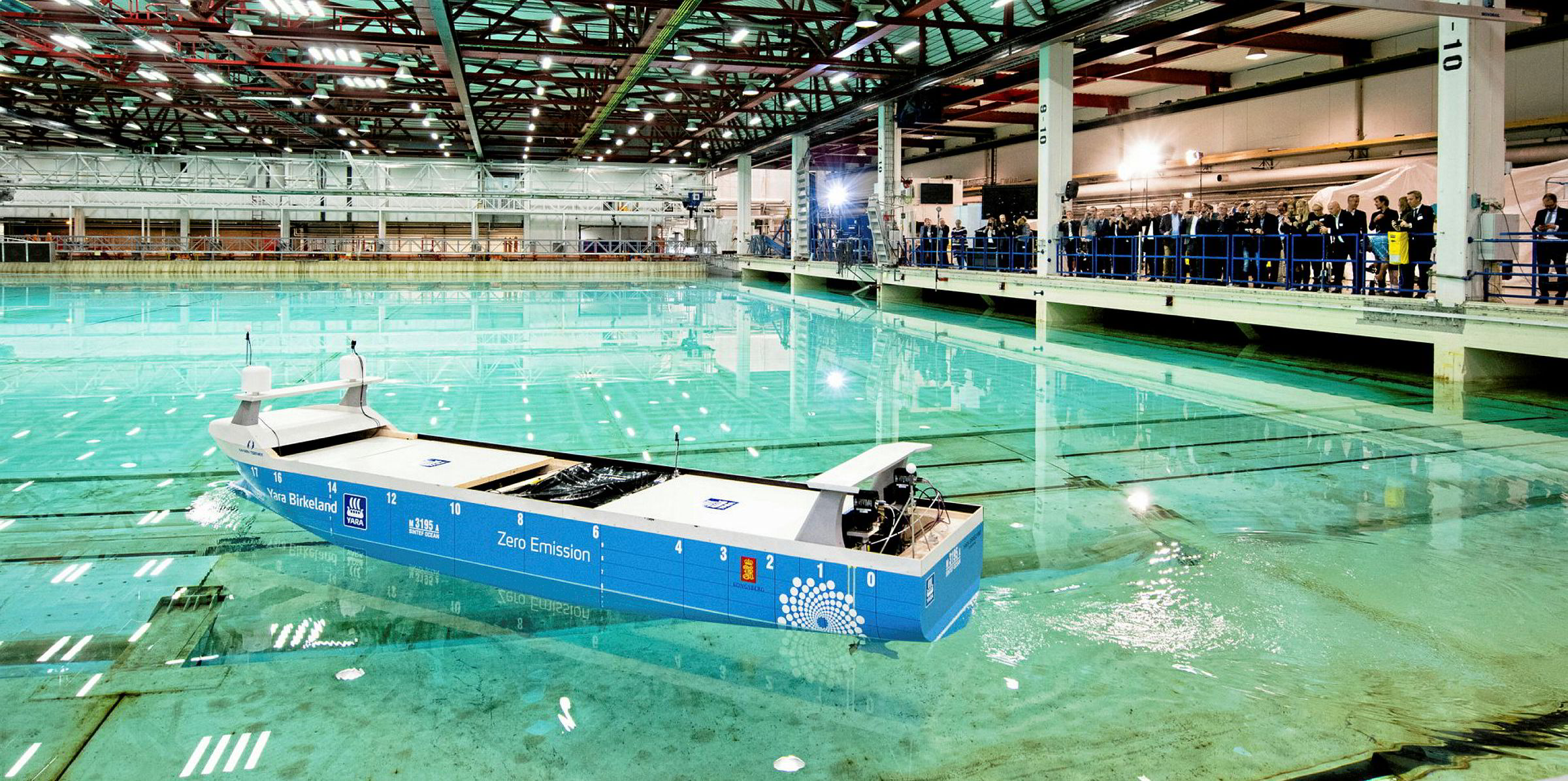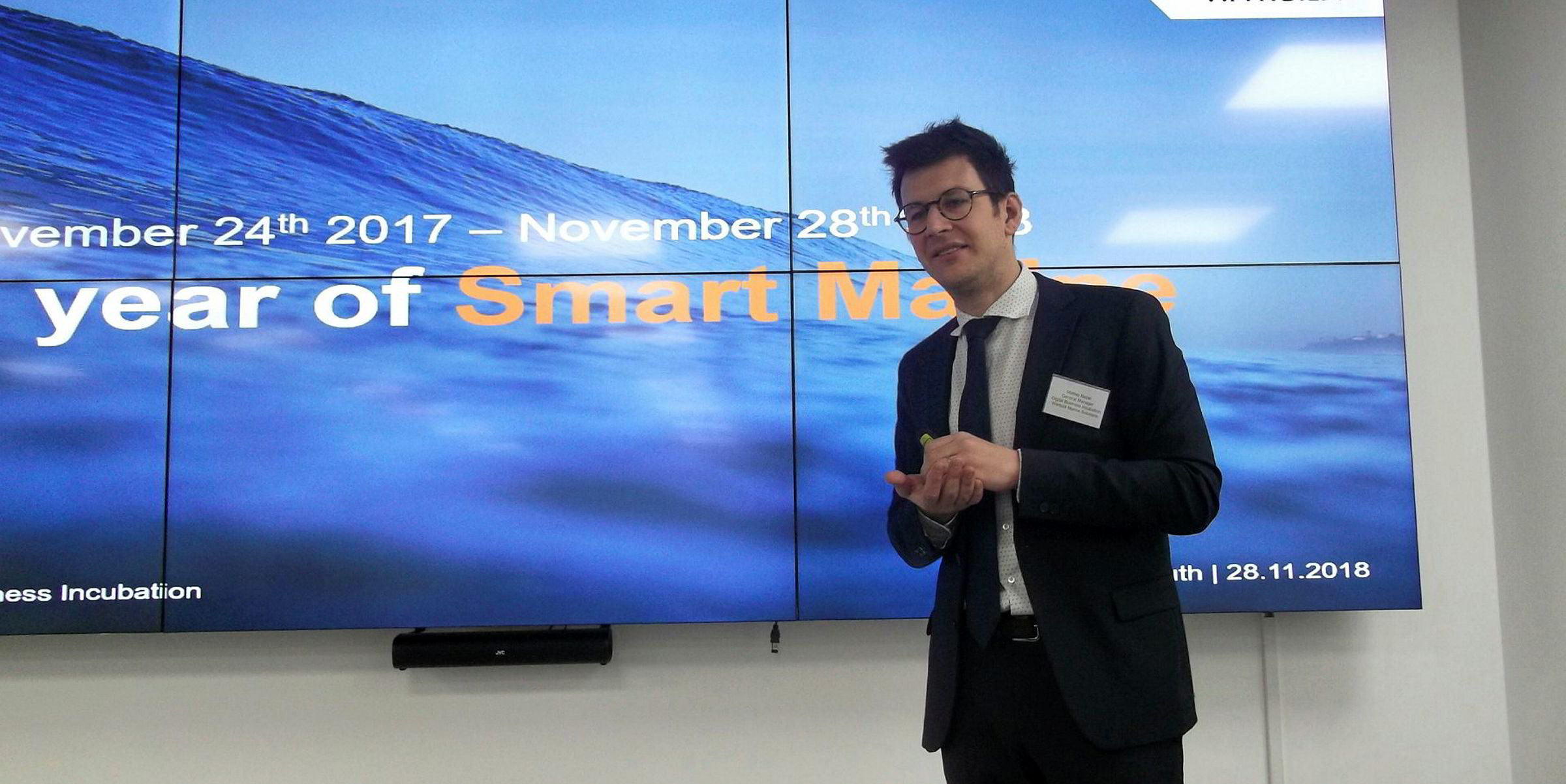Maritime professor Christopher Clott is on a mission to turn New York City into the Silicon Valley for the global shipping industry.
"I want to be the Stanford for maritech," he told TradeWinds today during an interview at SUNY Maritime College in the city's Bronx borough.
California's Stanford University played a major role over the decades in developing the San Francisco Bay area into a global center for technical innovation.
Clott hopes the school, founded in 1874 where the East River meets Long Island Sound, can do the same for New York, given the many high-tech startups in Manhattan and Brooklyn.
"I am the ultimate connector," said Clott, who teaches global business and transportation. "This could be huge."
He said the idea was born when Finnish company EEX (Entrepreneurship Exchange) came to SUNY in spring 2017 looking to set up a startup accelerator for new shipping technology.
In October 2017, Clott and fellow SUNY engineering professor Richard Burke co-founded the New York Maritime Innovation Center for startups and venture capitalists focused on maritime digital technology.
Within days, they held a reverse pitch event at the school to inform developers of the shipping industry's needs.
Eight months later, they held a breakout session on connecting maritime tech developments at a Marine Money event in New York and a Maritime Startup Showcase that had 10 firms show their business models.
It has also attended several other maritime shipping events in the US and Europe, including the Connecticut Maritime Association's 2018 Shipping Conference in Stamford, Connecticut.
Since then, several startup accelerators have come out of the woodwork, including US firms SeaAhead, Braid Theory and Ocean Exchange, Startup Wharf in London and Hamburg's Tec Pier.
"People are finding us," Clott said.
The fledgling innovation center, which now consists of Clott and a student worker, is seeking backing from major shipping names to pay for operational expenses and, perhaps one day, meeting space near New York's Grand Central Terminal.
The school has provided some initial funding but the center will need buy-in from outside entities for it to last into the future, he said. It costs about $100,000 a year to run.
"We're operating on a shoestring budget for now," he said.






